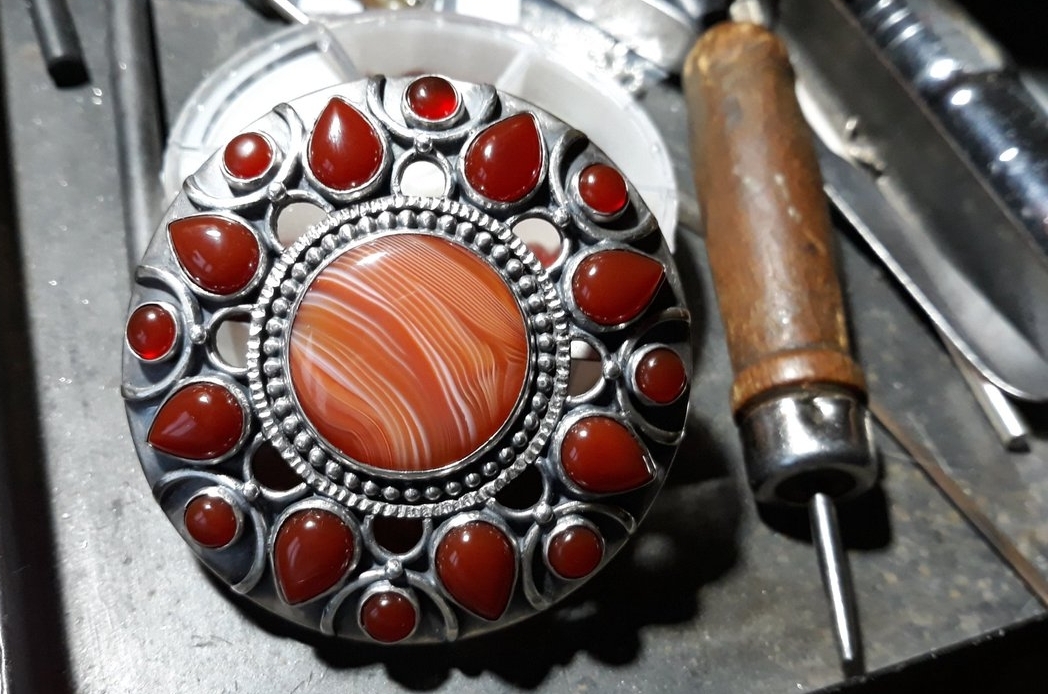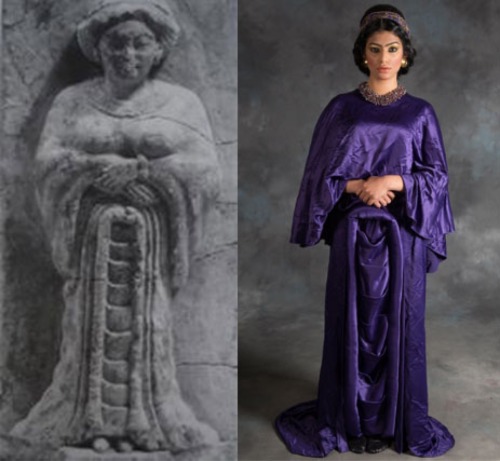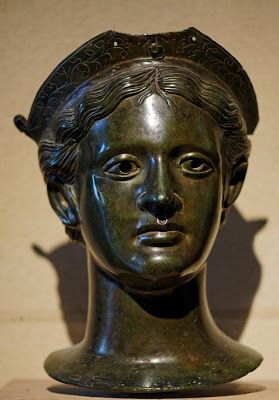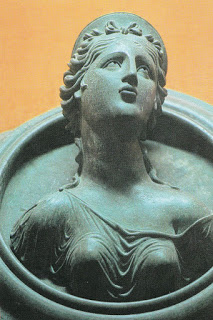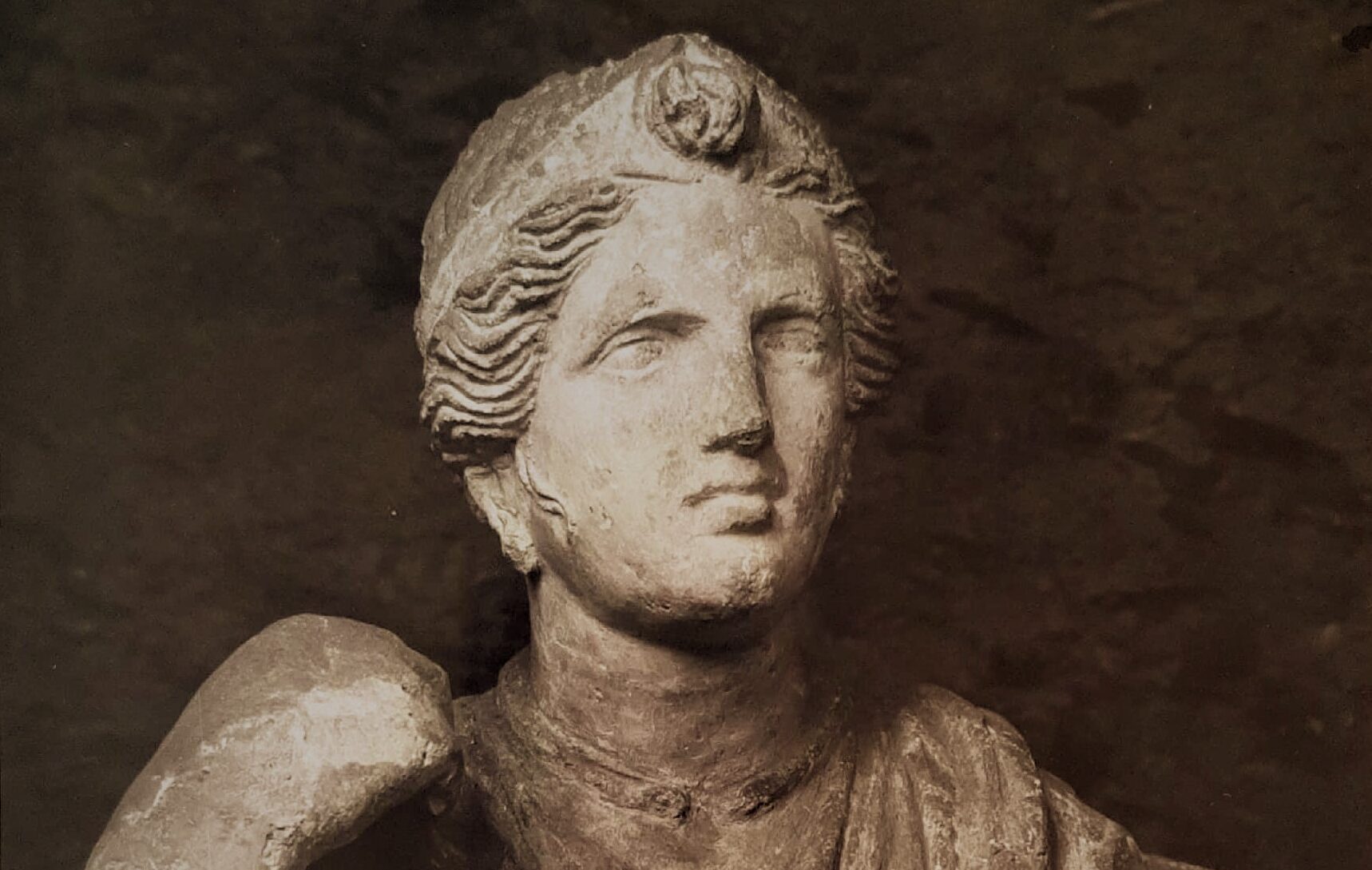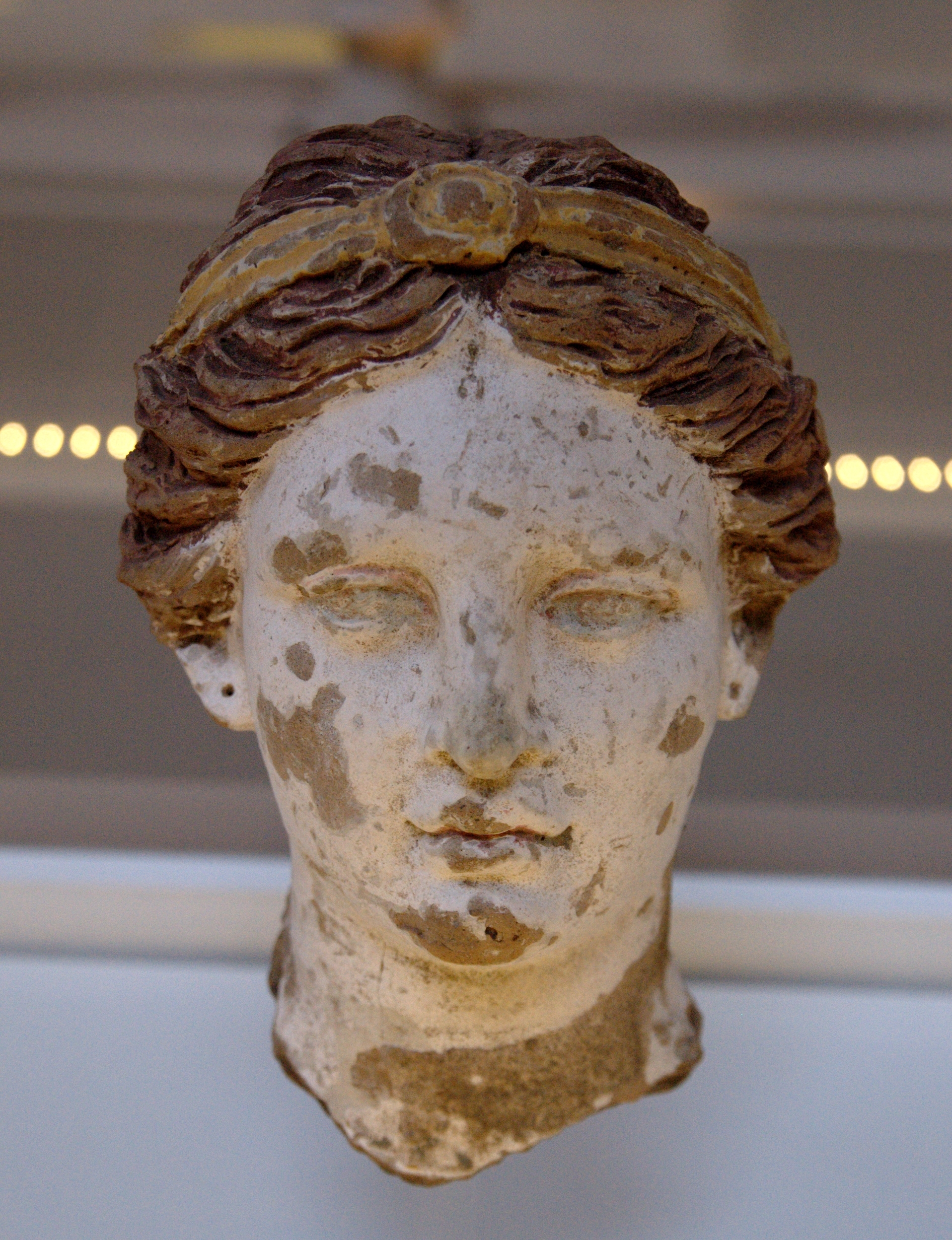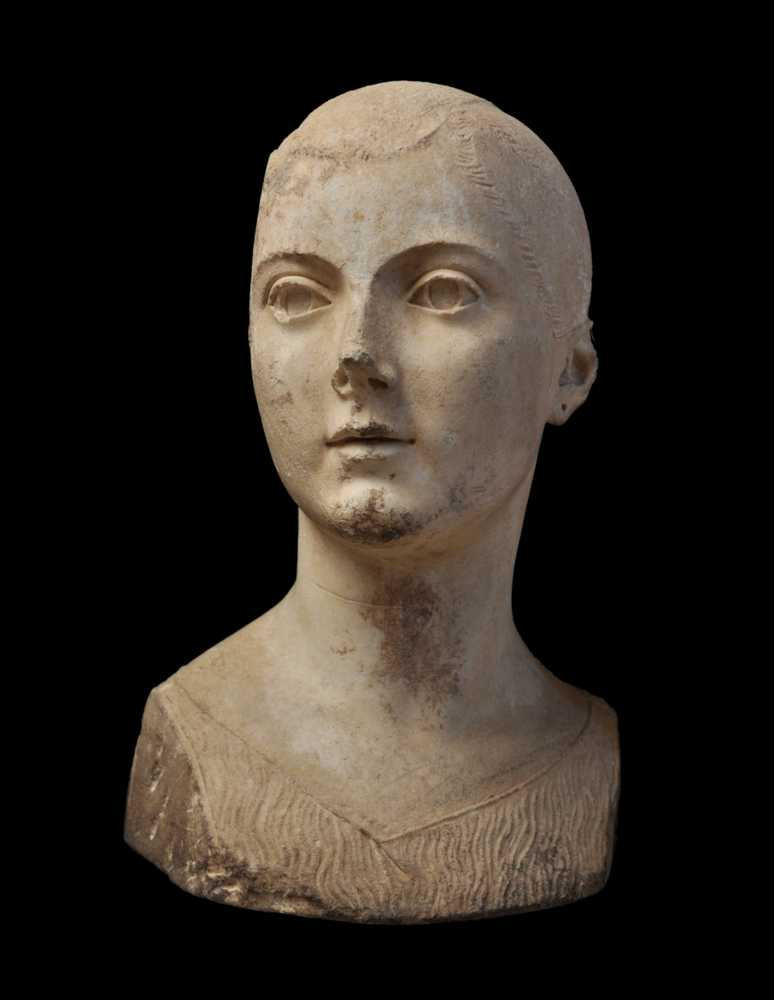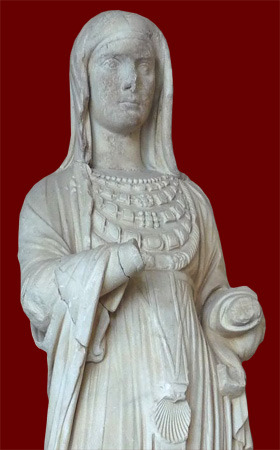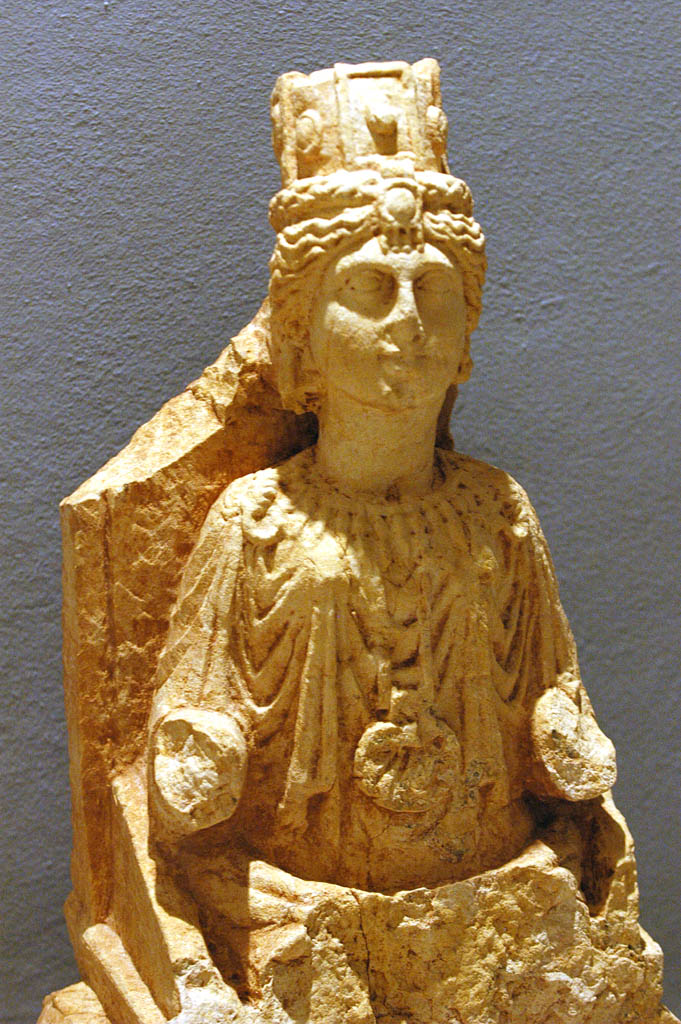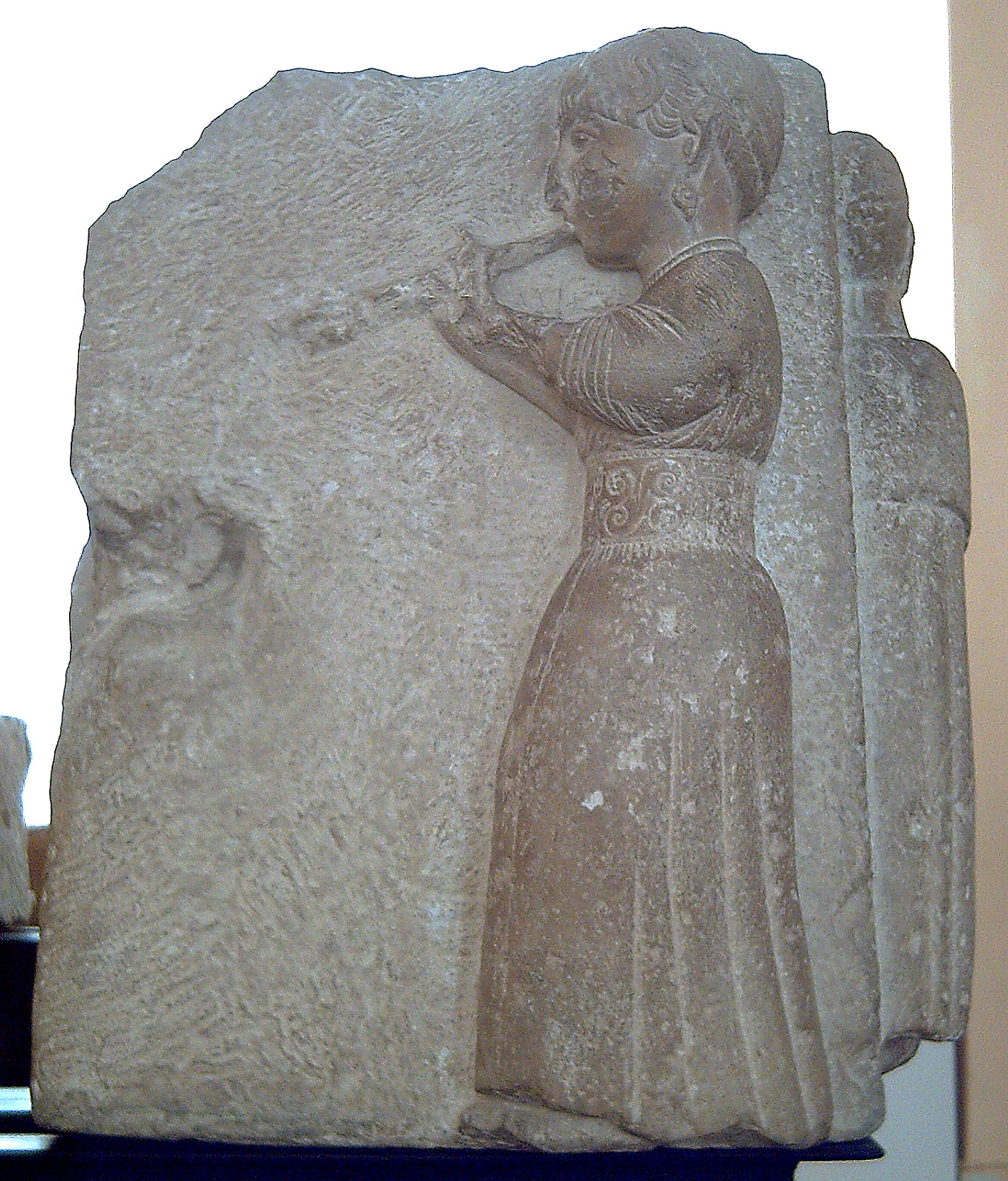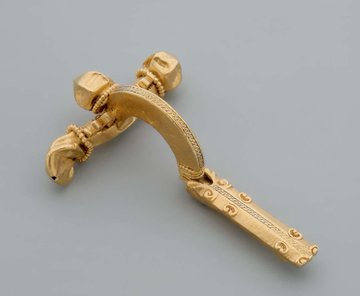The Dura Europos synagogue, The consecration of the Tabernacle and its priests. [photo here]

Photo source https://www.arkeolojikhaber.com

From the Christian cemetery of El Deir, Egypt; 4th century
© Photo F. Letellier-Willemin
Woman known as “Goddess”.
Mosaic comes from the Late Antique Roman villa (3rd-4th century), ancient city Pompeiopolis, Black Sea coast [today Turkey]. It is kept now at the Kastamonu Museum.
http://colorsandstones.eu/2022/10/16/37558/
Notice the diadem, earrings, bejeweled belt, scepter, fruit, halo and red shawl.
RED SHAWL / a scarf was found loose “in a vaulted grave together with the bodies of three men, one woman and a child, all partially wrapped in linen shrouds. The scarf consists of five main fragments, of which the end pieces are well preserved, including their selvedges. The whole piece measures 120 cm in the warp by 40 cm in the weft.”
It comes from the Christian Cemetery of El Deir, in the Egyptian Oasis of Kharga, dated to around the late 4th century.
Letellier-Willemin F., “Accessories from the Christian cemetery of El Deir, in the Egyptian oasis of Khargeh, Western Desert”, Sixth conference of the research group “Textiles from the Nile Valley”, Antwerp 2009, De Moor A. and Fluck C. and Linscheid P. eds, Lannoo Publishers, Tielt 2011 https://www.academia.edu
THE PORTRAIT ART DURING THE BYZANTINE PERIOD,
JORDAN: A COMPARATIVE STUDY
Mohammad Nassar
The University of Jordan, Faculty of Arts and Design, Amman, Jordan http://maajournal.com/Issues/2016/Vol16-3/Full9.pdf

after Mohammad Nassar

after Mohammad Nassar
Floor mosaic with a portrait of a woman, the Chapel of
the Priest John at Mount Nebo-Mukhayyat, dated 565 CE.
“The Portrait came amid a simple square frame, colored black shale and dark red, which represents a woman wearing a dress tunic, colored white, black and gray. The mantle colored in red, pink and yellow; while connects to the top with bond circular colored in yellow and black like the ring, hair long was a wreath and a crown of pearls colored in yellow, earrings round shape. It is also a pearl, surrounded by a halo white and black; the face of portrait is round with a wide brown eyes.” [Mohammad Nassar]
http://colorsandstones.eu/jewelry-on-sculptures-mosaics-and-paintings/jewelry-on-sculptures-big-frontal-brooches-sculptures-and-gold-glass/

Late Roman [early 6th century] mosaic with representation of Tyche, goddess of fortune, found in the semicircular exedra off Palladius Street at Scythopolis (Beit She’an), Israel Museum, Jerusalem
Urbanism at Scythopolis-Bet Shean in the Fourth to Seventh Centuries
Yoram Tsafrir and Gideon Foerster
https://www.jstor.org/stable/1291763
